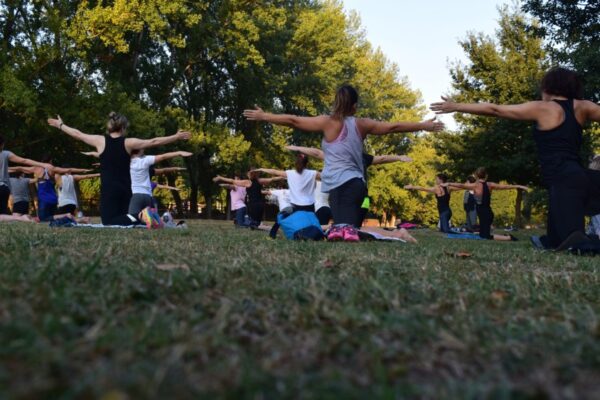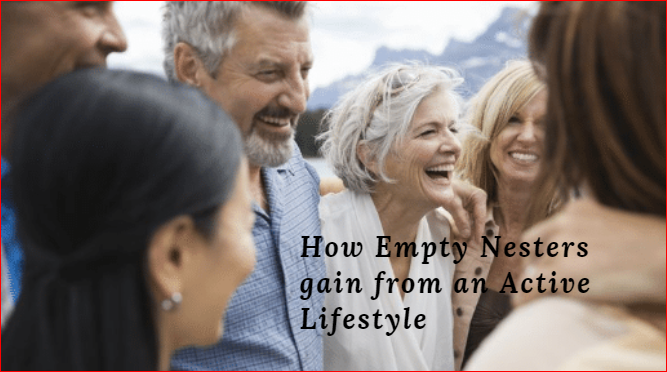Empty nest syndrome is not a vague, theoretical issue — it’s a real problem impacting millions. According to the Mayo Clinic, grown-up kids’ transition out of the home can lead to their parents feeling sadness, loss, and disconnection.
On the other hand, this major life transition also represents the opportunity to rediscover old hobbies, find new interests and make new connections. An active lifestyle is important at all stages of life, but even more critical if you’re an empty nester. It creates a foundation of mental and physical health that allows you to stay independent and in your home for years to come.

Those having empty nester syndrome can engage themselves independently in different works (SixtyandMe)
How Active Do I Really Have to Be?
An active lifestyle can mean anything from vigorous physical exercise like jogging or tennis to social activities such as team card games or group lunches. Walking a 5K, going to a baseball game or simply meeting friends for coffee all “count” as active.
Staying active has mental and physical benefits—and the two often go hand-in-hand. A study from researchers at the University of California, San Francisco found that older adults who experienced mental decline could significantly improve memory and thinking through physical exercise, and “the amount of activity is more important than the type.” In other words, any physical activity is better than none.

Empty nesters rediscover rewards in a way of treadmilling together (Duke Health)
Mental and Physical Benefits of an Active Lifestyle
There are numerous studies linking physical activity with improved ability and wellbeing—both physical and mental. Findings include:
Increasing physical activity increases oxygen to the brain, which may help improve cognitive function.
A simple walking program can significantly reduce the symptoms of depression for people age 60+. They can even try out cycling and if they don’t know, they can learn and go for cycling ride with their friends.
Staying active reduces the chance of injury, improves balance and strengthens joints and muscles.
Exercise and physical activity can also reduce the risk of falls.

Yoga and exercises for the empty nesters can be a great aid (Living 4 You Boutique)
One Unexpected Benefit
We all know physical activity is good for us, but what about socializing and dining with friends?
According to a study of hospitalized seniors, dining together can have significant unexpected impacts. The Mental Health Foundation also promotes the social, biological, and psychological benefits of sharing meals. When we eat together, we tend to consume more food and receive better nutrition, which can help prevent age-related health issues caused by malnutrition.
According to the Center for Advancing Health, socially active adults display aging indicators at a slower rate, and a study from Brigham Young University prescribes social connection for living longer—and healthier.
What are your favorite tips for keeping active? Let us know in the comments!
[External Resurce]
google.com, pub-3862145386704795, DIRECT, f08c47fec0942fa0
Sanghamitra Roychoudhary
Follow me as @SanghamitraRch on Twitter.
Latest posts by Sanghamitra Roychoudhary (see all)
- Tata IPL 2024 Season 17 Starts from March 12 till May 26, 2024 - Mar 17, 2024
- Best Safety Tips to Celebrate Holi Festival - Mar 10, 2024
- Star Plus kickstarts with Udne Ki Aasha serial from March 12 - Mar 3, 2024

A proficient Web Content Developer (Technical and Non-Technical Writer), Blogger, and Freelance Content Writer. A happy author of www.w3buzz.in! She is a creative person, always eager to learn new aspects, and seeking new ways for improving skills in her field. She loves traveling & photography; also, a sports enthusiast!
Follow me as @SanghamitraRch on Twitter.

Leave a Reply